It would be an understatement to say that the Covid-19 pandemic changed the job market and how companies operate. The changes were sudden, drastic, and shook the foundations of the traditional way most people looked at work. Suddenly, a large portion of the developed world found themselves working from home, maybe even for the first time in their lives.
It’s exciting. It’s efficient. And it’s here to stay. At least, according to Chris Herd, the founder and CEO of FirstbaseHQ.In a viral Twitter thread, Herd collated what he learned about the future of remote work and working from home from thousands of companies. Have a read through his intriguing posts, so let’s dive head-first into the fascinating topic of how the job industry is being modernized. The future looks bright and far more flexible than anyone dared to dream. Herd’s company FirstbaseHQ helps businesses set up, manage, maintain, and retrieve the physical equipment their remote workers need to do their jobs remotely. So you know for a fact that Herd believes what he’s preaching—he’s even built a business around this idea.
Eddy Ng, the James and Elizabeth Freeman Professor of Management at Bucknell University, went in-depth about remote work in an interview with Bored Panda. According to him, telework is definitely here to stay. However, “not all employees will be working from home permanently.” Read on for his full insights and, if you’re curious to learn more, have a look through his report on telework during the Covid-19 pandemic right over here.
Image credits: Michael Coghlan
Chris Herd listed how lots of companies are looking at remote work and what the benefits, as well as the issues with it are
Image credits: chris_herd
Image credits: chris_herd
Image credits: chris_herd
Image credits: chris_herd
Image credits: chris_herd
Image credits: chris_herd
Image credits: chris_herd
Image credits: chris_herd
Image credits: chris_herd
Image credits: chris_herd
Image credits: chris_herd
Image credits: chris_herd
Image credits: chris_herd
Image credits: chris_herd
Image credits: chris_herd
Image credits: chris_herd
Image credits: chris_herd
Image credits: chris_herd
Image credits: chris_herd
Image credits: chris_herd
Image credits: chris_herd
Image credits: chris_herd
Managers have adapted to the changes since the start of the pandemic
According to Professor Ng, some academics are already talking about a remote work economy. “Some employees will continue to work from home post-pandemic, venturing into the office occasionally, while others will definitely see some form of telework arrangements in their work lives,” he explained to Bored Panda.
The changes were a real challenge for some managers, however, they’re getting better with practice. “Initially, managers encounter challenges with coordinating and supervising employees remotely. However, they are adapting and getting better at managing remotely. Complaints about control and coordination, e.g., employees working on wrong tasks, not completing tasks on time, or not responding are low.”
Professor Ng, from Bucknell University, said that there is a definite blurring of work and home life and activities. This had led to work hours getting extended. “Historically, employees work set hours (e.g., 9 to 5) but they are now engaged with some form of work during their ‘waking hours.’ This can lead to slow burnout and a lack of social support (isolation, mentoring) that normally comes from working in person at the office. Employers and managers will need to set boundaries around remote work, and having employees come into the office 1-2 times a week (post-pandemic) to alleviate some of these concerns.”
Telework doesn’t mean competing against the entire world
Bored Panda was also curious to find out whether remote work means that potential employees would have to compete for job positions against candidates from all over the world. The professor pointed out that pretty much anyone with access to a computer and an internet connection can telework from anywhere in the world. However, not everyone is “eligible or suited” for every position. What’s more, not all remote work can be performed from anywhere in the world.
“Some roles do require specific and tacit knowledge or relationship building. This may be difficult or challenging for someone working in a different time zone, or do not have the ability to meet in person on short notice,” the professor said, adding that trust is hard to establish online. “Nonetheless, telework will be here to stay post-pandemic, and the remote (work) economy will create a global labor market.”
Lots of us already know the benefits of remote work. Among them is protecting our loved ones from the coronavirus by having contact with fewer people every day. What’s more, we’re saving time by not having to commute to the office, so we have more time for rest, leisure activities, and our families. However, remote work isn’t the panacea that many thought it would be. It still has its flaws, especially while companies and managers cling to their old philosophies.
There’s lots of potential for burnout because employees are working harder and longer
Some employees are remarking that they’re working far longer hours when working remotely or that their workloads have increased dramatically.
Others have reported that it’s difficult to separate work from leisure now (which is why it’s important to have a dedicated space at home where you only work so you’re physically leaving it once you clock out). Naturally, we’re seeing lots of cases of burnout. Think about your coworkers and you’ll see what I mean.
For some, remote work is only a temporary pleasure, however. Even though the pandemic is nowhere near controlled yet, spring and summer are approaching and it’s likely that lockdown restrictions will be lifted. A cause for celebration, yes? Not exactly.
This means that some businesses will be rushing to herd their employees back into their cubicles and open offices with their water coolers, beanbags, and foosball tables. Only to send them packing again once autumn comes around again. Others, however, have learned from the past year and will have adapted. For them, the semi-annual mass exodus doesn’t make sense and they’ll want to move to a more permanent system that maximizes flexibility and employee choice.
Flexibility, choice, and finding balance are the name of the game
After all, employees can be very different in how they approach work. Some thrive in the office while others are most efficient at home. Some need to be constantly surrounded by their coworkers while others want to limit their interactions during working hours. Some have large families and work from their kitchens without any privacy while others have dedicated offices at home.
But choosing between the office and home isn’t about making binary choices. They’re a spectrum. And many will opt for balance: mixing work from home with work from the office and getting the best from both worlds. This way, you stay emotionally invested in your colleagues and the company while also being treated like a responsible adult who knows what’s best for them.
That’s why offering employees the choice of how they approach things is best. After all, if we’re completely honest with ourselves, we know where and under what conditions we work best. And if your work results corroborate your view of your performance, well, more power to you.
Remote work—a question of trust?
There are, however, practical limitations to remote work. You can’t suddenly jet off to Barcelona and work from a beachside cafe while taking in the waves and the stunning architecture. There are lots of complicated tax reasons for this, as well as some managers’ suspicions that you might be relaxing during work hours.
In other words, it’s all a question of trust. It means having a record of getting the job done under any circumstances. If you’re trusted, you then get rewarded with flexibility and being able to live a high-quality life while also raking in the dough and climbing up the career ladder like Winnie the Pooh going after a beehive.
Here’s what people are saying after reading through Herd’s tweets
Image credits: greglandel
Image credits: DMuircheartaigh
Image credits: hammerotass
Image credits: brez223
Image credits: ChrissyKinsella
Image credits: apetechda
Image credits: richardbrown200
Image credits: coventina62
So, dear Pandas, what do you think of remote work? Is it here to stay? Is it going away (temporarily) the moment the weather warms up and the lockdown restrictions ease up? Is Herd looking at this too optimistically? What have your own experiences with remote work been like? Are you working more? How do you deal with burnout? We can’t wait to hear what you think, so drop us a comment or two below!
Generalization is also here to stay. Many claims he makes are reasonable, but the absoluteness with which he proposes these is questionable. Also, the numbers he shows have a bit of boasting in them.
Exactly. Also, he skipped the topic of information security, which is the main reason our company was reluctant to start this method in the first place.
Load More Replies...Before the pandemic i worked from home 2-3 days a week, and I loved it. Since the pandemic I have been working from home every day of the week, for almost a year now, and while there are definitly positive aspects about working from home, more and more negative ones are starting to pop up: withered down relationships with coworkers, low moral, lesser "loyalty" to the company, etc. While productivity remains the same, the social benefits of working (socializing with coworkers for ex.) are gone.
I would love to switch to a mostly work from home schedule after this. I do miss seeing my coworkers in person. I think going in once a week or every other week would be fine to keep us more personally engaged. Most days at work, I spent at my desk, not having much interaction with other people anyway. And to do that, I had to spend 2-3 hours in a car every day.
Load More Replies...Just like outsourcing your IT to India. It looks great in theory, but in practice... Our workforce is at home fulltime or at the lab fulltime. The troubles we have had the last year are stupendous. The amount of work relating questions people at home are sending in is debilitating. The 'could you check' 'please provide' 'you'll have to make this for me'. There is no time for this s##t, that's work they used to do themselves. We can't (and won't) cover their work while we're understaffed due to a certain pandemic.
Generalization is also here to stay. Many claims he makes are reasonable, but the absoluteness with which he proposes these is questionable. Also, the numbers he shows have a bit of boasting in them.
Exactly. Also, he skipped the topic of information security, which is the main reason our company was reluctant to start this method in the first place.
Load More Replies...Before the pandemic i worked from home 2-3 days a week, and I loved it. Since the pandemic I have been working from home every day of the week, for almost a year now, and while there are definitly positive aspects about working from home, more and more negative ones are starting to pop up: withered down relationships with coworkers, low moral, lesser "loyalty" to the company, etc. While productivity remains the same, the social benefits of working (socializing with coworkers for ex.) are gone.
I would love to switch to a mostly work from home schedule after this. I do miss seeing my coworkers in person. I think going in once a week or every other week would be fine to keep us more personally engaged. Most days at work, I spent at my desk, not having much interaction with other people anyway. And to do that, I had to spend 2-3 hours in a car every day.
Load More Replies...Just like outsourcing your IT to India. It looks great in theory, but in practice... Our workforce is at home fulltime or at the lab fulltime. The troubles we have had the last year are stupendous. The amount of work relating questions people at home are sending in is debilitating. The 'could you check' 'please provide' 'you'll have to make this for me'. There is no time for this s##t, that's work they used to do themselves. We can't (and won't) cover their work while we're understaffed due to a certain pandemic.

 Dark Mode
Dark Mode 

 No fees, cancel anytime
No fees, cancel anytime 


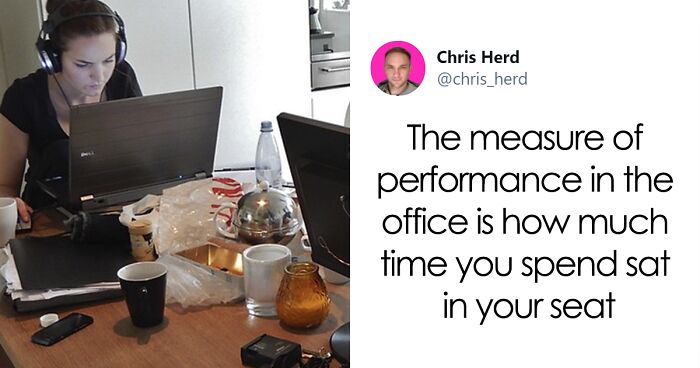
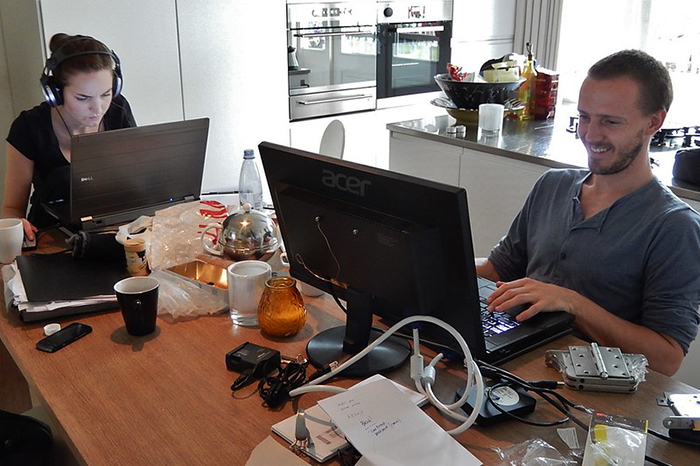

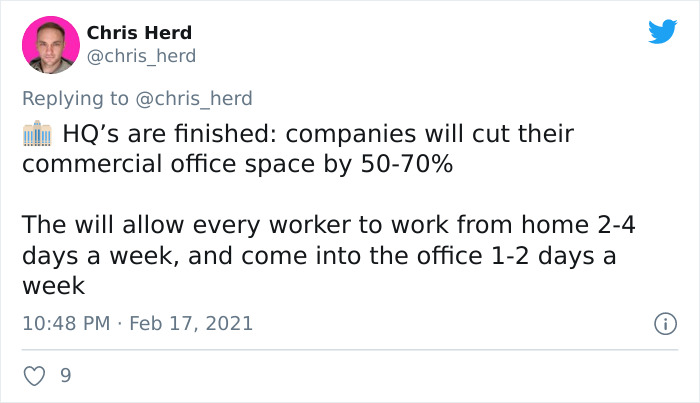
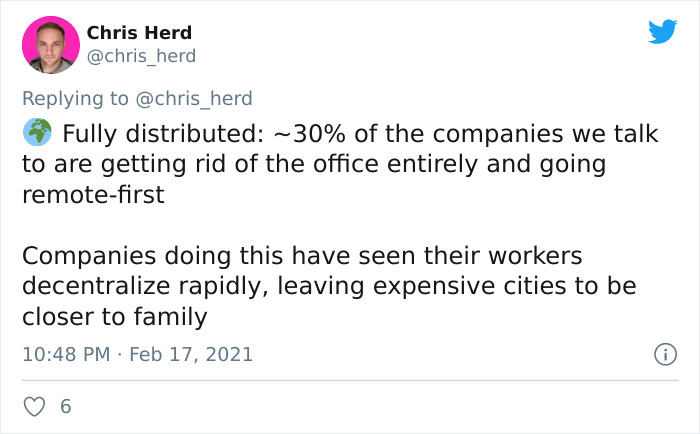
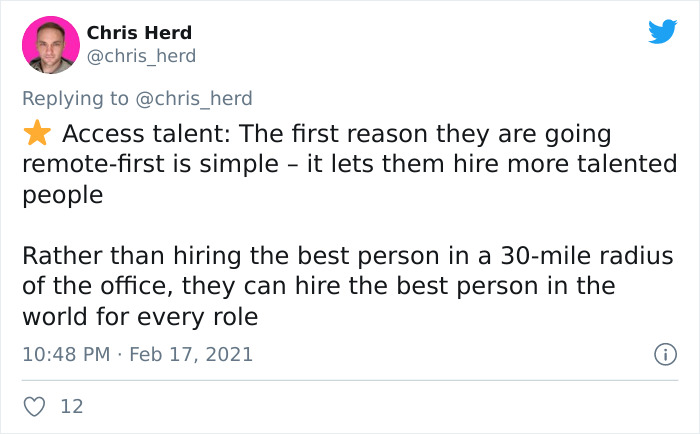
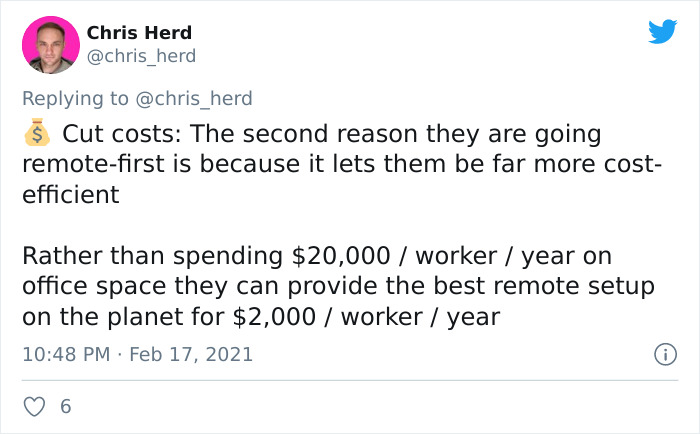
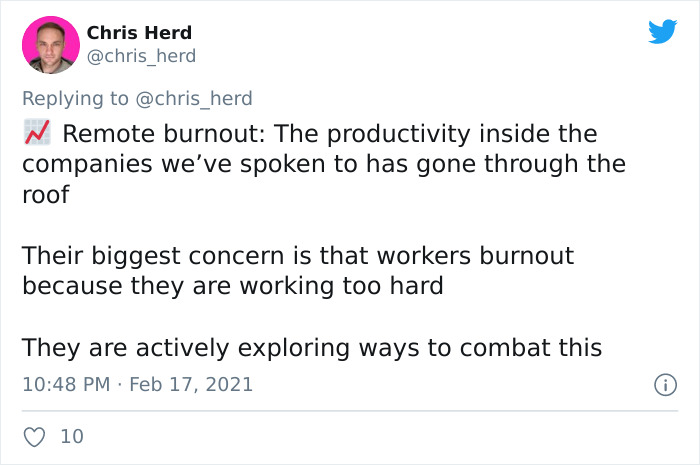

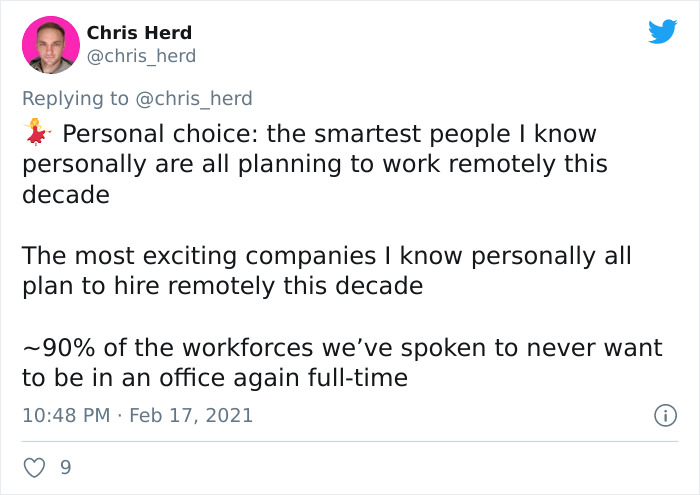
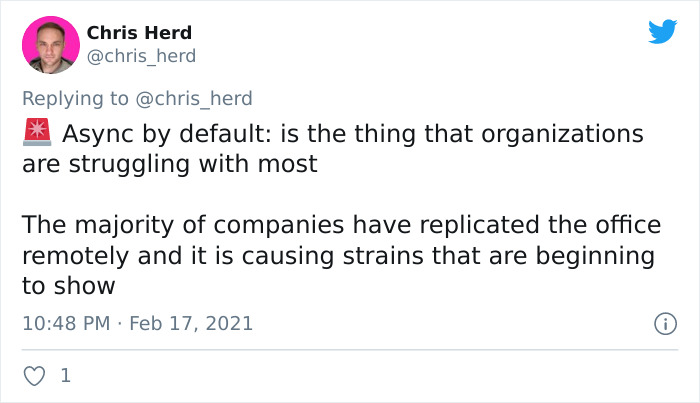
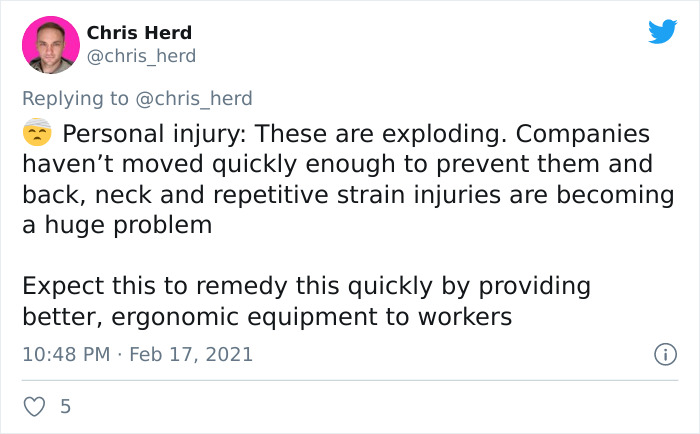
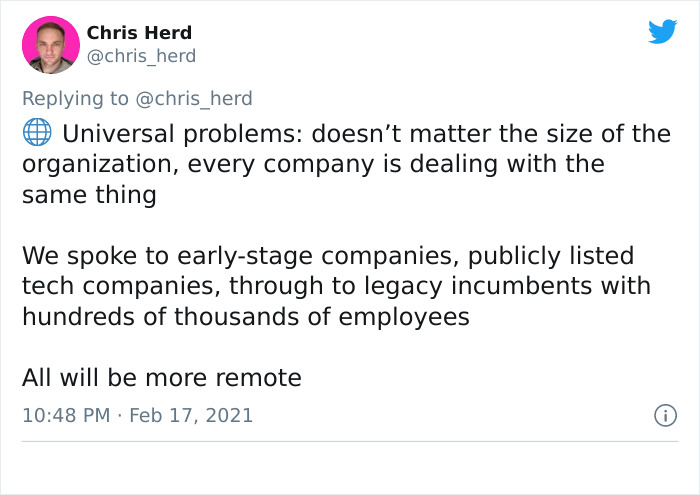

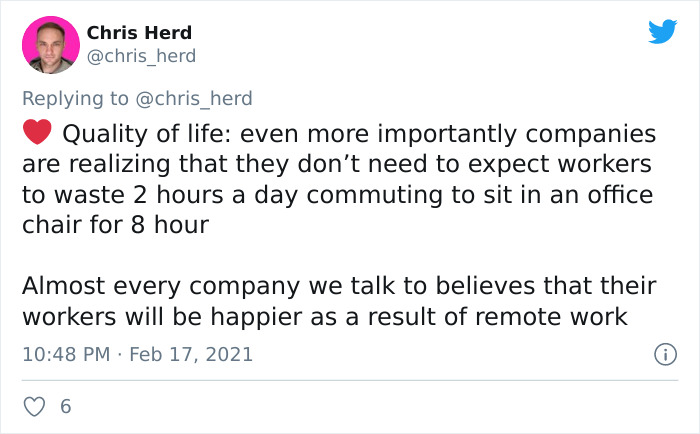
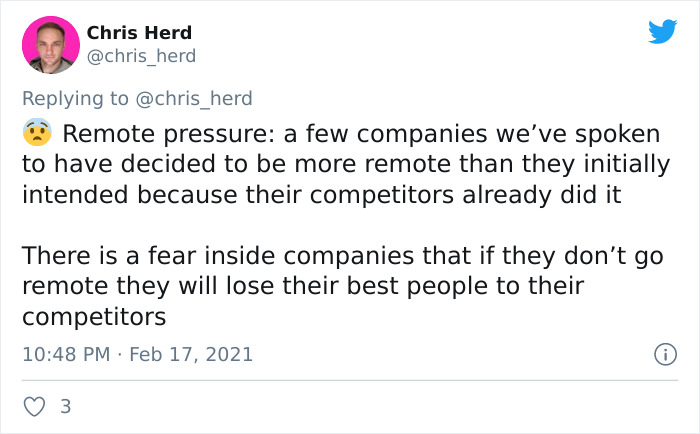
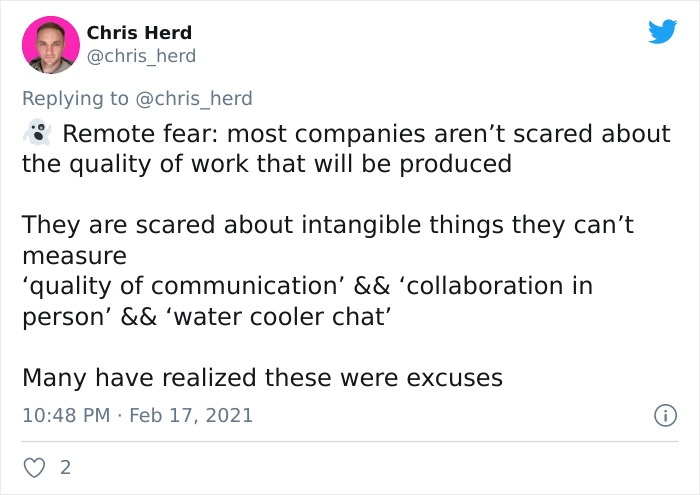
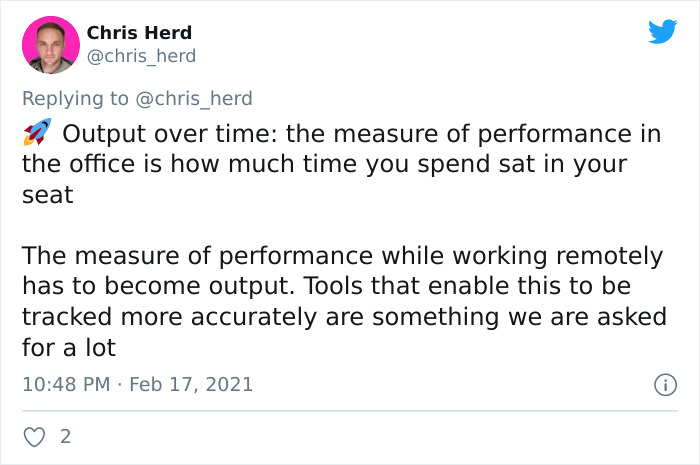
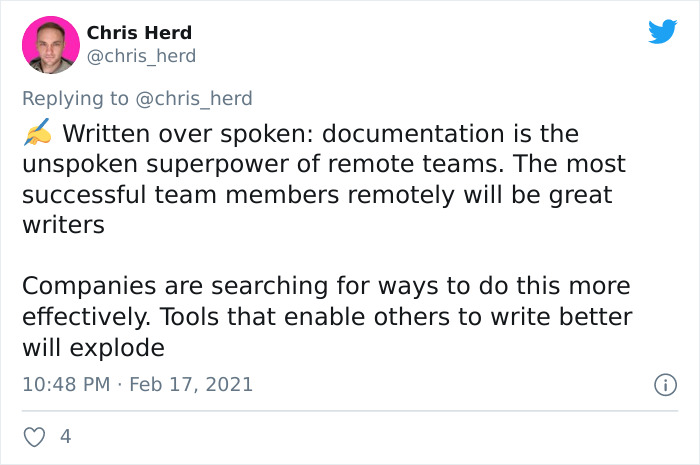
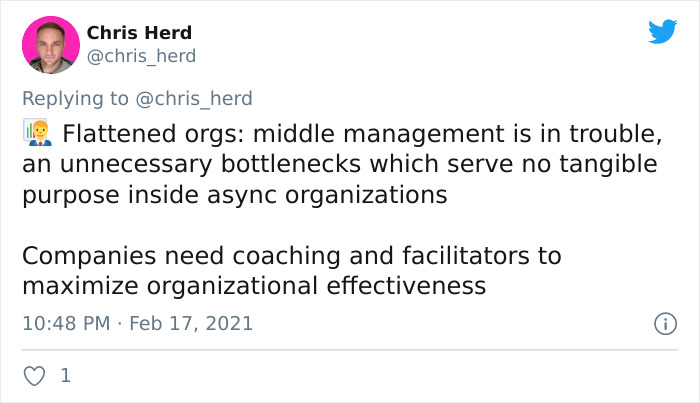
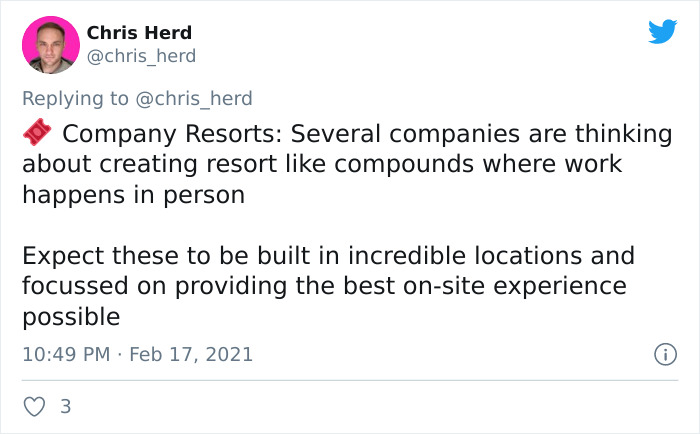
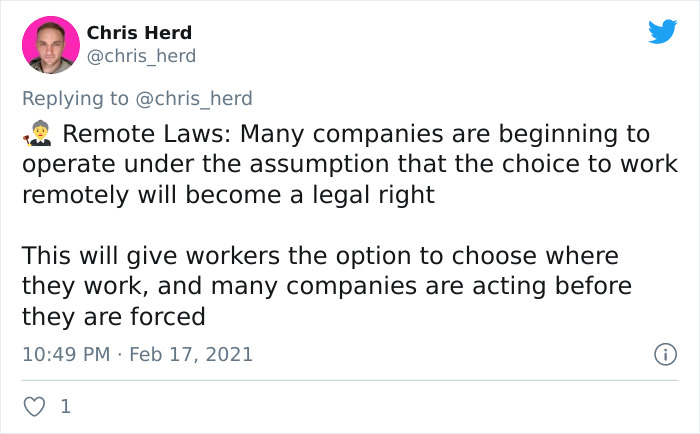

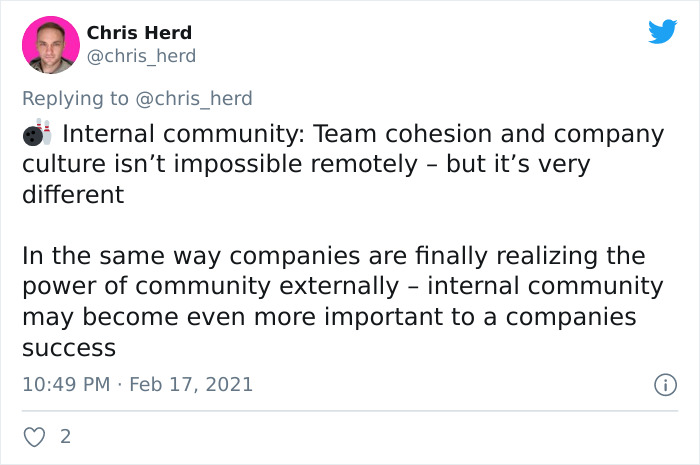
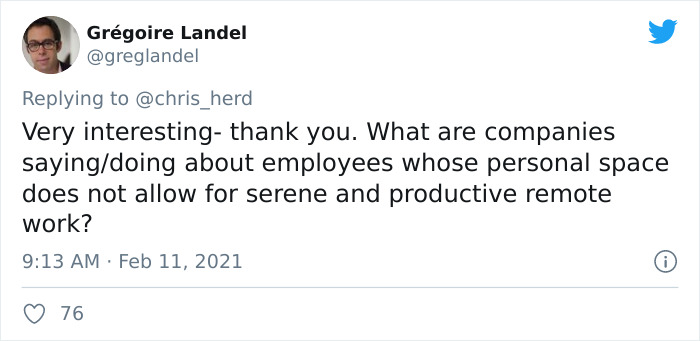

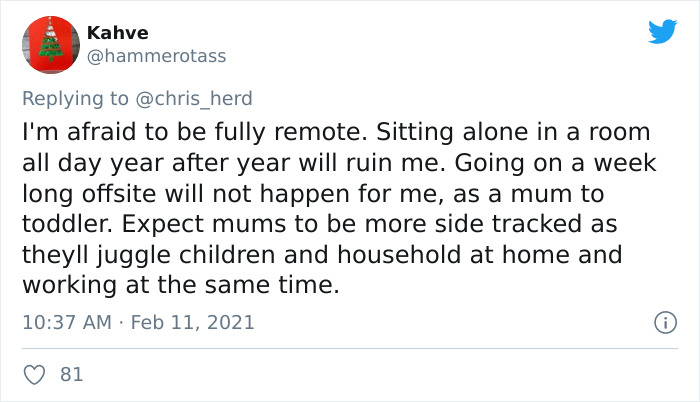

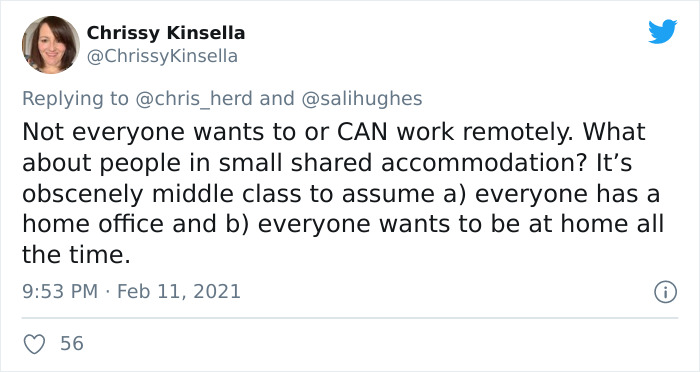
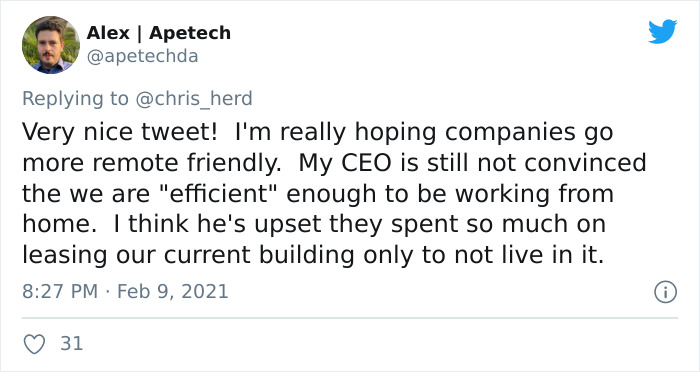

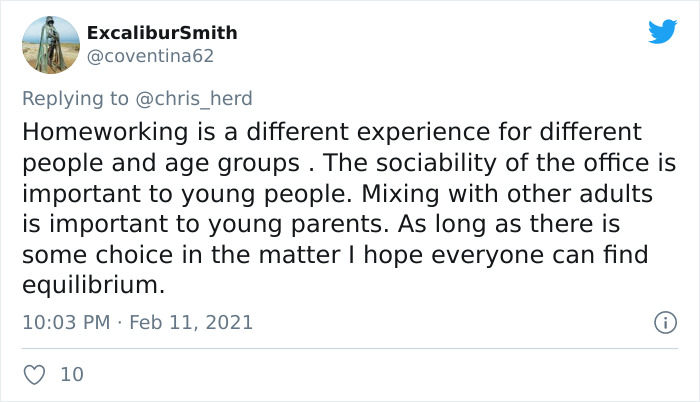












































136
84